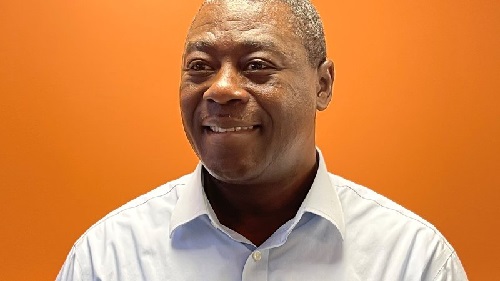
Water pollution poses threat to Ghana's water security - Water Research Board Chair
The continued pollution of Ghana’s water bodies will serve as additional stress to efforts to supply clean and potable water to Ghanaians.
The Board Chairman of the CSIR-Water Research Institute (WRI), Anthony Boateng, who made the above observation believes that many Ghanaians do not value water nor the environment, hence the continued destruction of the country’s water bodies and environment.
He said even though access to clean and secure water is integral to Ghana’s growth and development objectives, “Our individual and collective behaviour as citizens clearly does not seem to put greater value on water.”
Mr Boateng, who was speaking at the Open Day of the CSIR-WRI on Tuesday, November 28, 2023 in Accra, said “our actions have clearly shown over the years that we do not value water nor our environment.”
Open Day
The Open Day is an event organised biannually to promote sustainable exploration, use and management of water resources in Ghana.
The Open Day aims to foster a deeper understanding of the challenges and opportunities linked to water security.
The event brought together government agencies, industry, research and academic institutions, media and the general public to rethink the solutions to enhance Ghana’s water security.
Mr Boateng further indicated that even though the acceptable turbidity value for drinking water is 5 Nephelometric Turbidity Unit (NTU), in June 2021, the agency recorded turbidity levels ranging from 63 NTU (at Kyebi on Birim) to 1,122 NTU (at Odaso on Offin).
He expressed the concern that the high turbidity levels of the said rivers were recorded a month when pollution levels of the said water bodies were low, raising an alarm for an urgent action to be taken to address water pollution in the country.
The Director, CSIR-Water Research Institute, Prof. Mike Yaw Osei-Atweneboana, said water is an invaluable resource that affects every facet of our existence, hence its security and sustainability are pivotal to the wellbeing of our nation.
He said the purpose of the Open Day was to bring to the forefront the urgent need for a collective re-evaluation of the value of water in the country.
That, Prof. Osei-Atweneboana, said, “through insightful discussions and informative presentations, we will explore innovative solutions and strategies to ensure that Ghana’s water resources continue to serve the socio-economic and environmental needs of our society.”
Showcase your work
The Board Chair of CSIR Council, Prof. Robert Kingsford-Adaboh, urged the CSIR-WRI and other institutes under the agency to showcase their innovations to the public, pointing out that because many people do not know or are unaware of the work of the agency, some members of the public continue to encroach on the agency’s lands, as well as taking over properties belonging to it.
He admonished the agency to use the Open Day celebration to educate Ghanaians on its work.
The Director-General of CSIR, Prof. Paul Bosu, pledged the readiness of the agency to use all available mediums to educate Ghanaians on its work and innovations.
He also called for support from all, including the private sector to enable the agency to extend its influence even in other parts of Africa.
Launch
Launching the event, the Chief Director of the Ministry of Environment, Science, Technology and Innovation (MESTI), Mr Kwamena Essilfie Quaison, who spoke on behalf of the sector Minister, Dr Kwaku Afriyie, commended the Water Research Institute for its contributions to the country’s development, particularly in the areas of water and its related resources.
He expressed the concern that the wanton pollution of the country’s water bodies poses major threats to the country’s socio-economic development, calling for a collective effort to reverse the trend.
Mr Quaison said Ghana depended on fresh water bodies for many economic activities, thus polluting the sources of these water bodies would affect the country’s development negatively.
He said as part of efforts to help redeem the country’s water bodies, the Ministry has initiated process to include water management practices in the curriculum of basic and Senior High Schools in the country.
That, he noted, would help to equip the younger generation with knowledge on how to protect the country’s water bodies.
For him, the country’s problem with water was not about availability but governance, hence needing governance measures to secure it.
The former Director, Institute for Environment and Sanitation studies, University of Ghana, Prof. Chris Gordon, said water has no substitute and that everyone must be an agent to help protect the country’s water bodies and environment.
